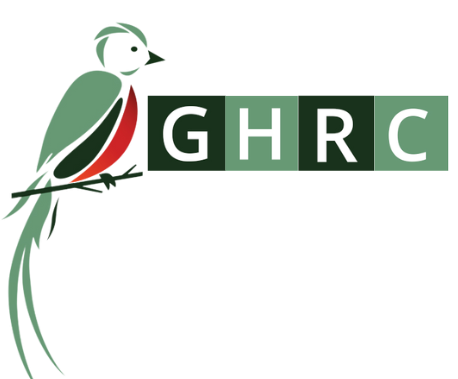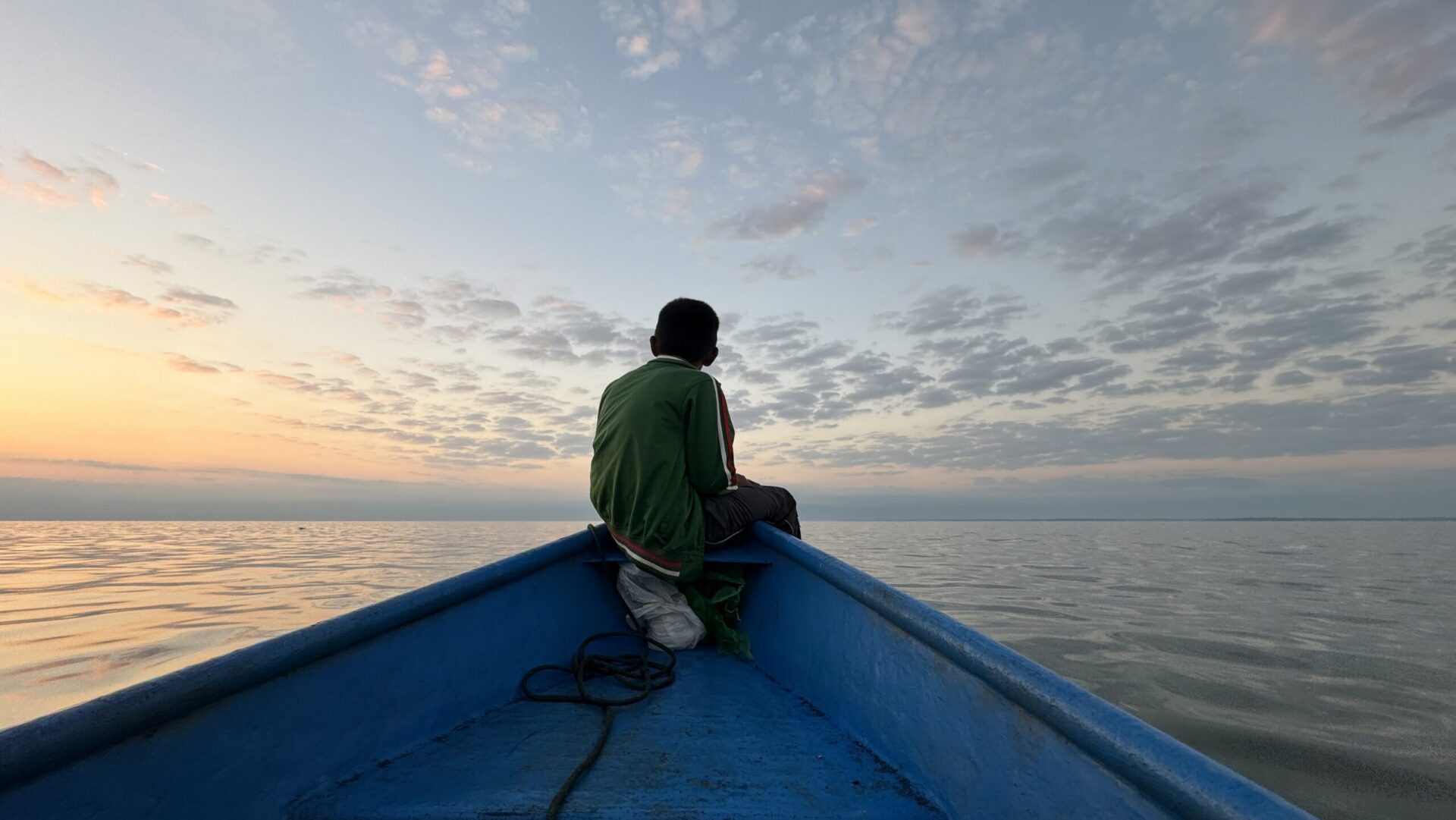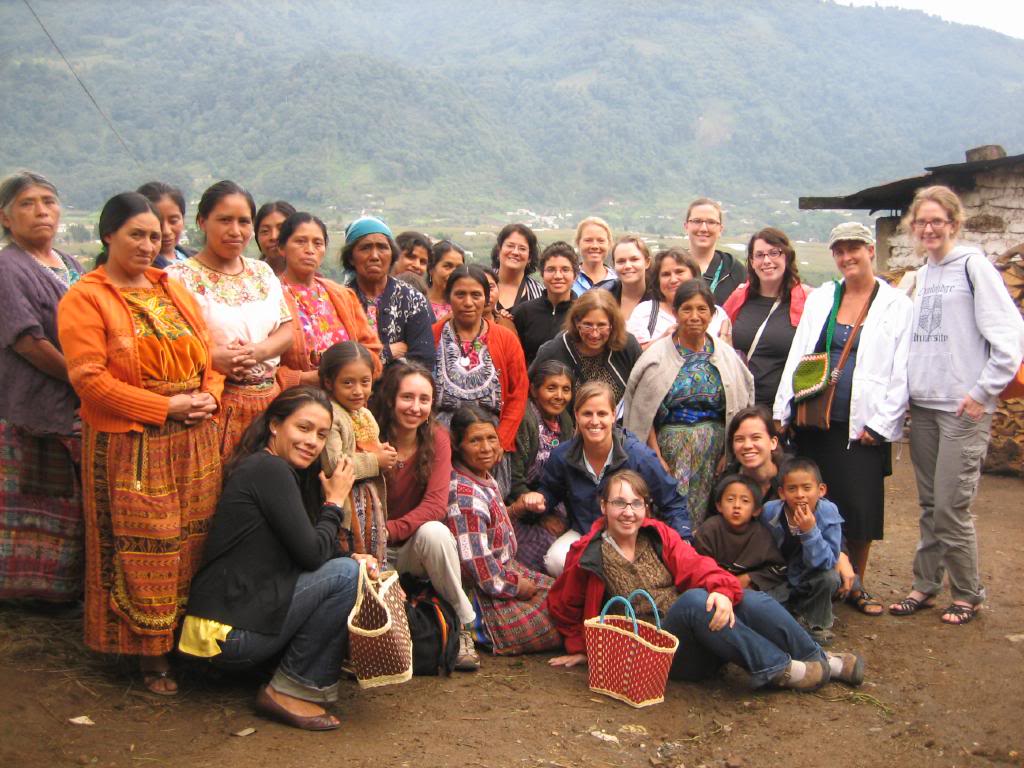Past Delegations
Emergency Human Rights Delegation – July 23 – 30, 2022
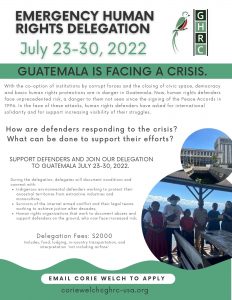 From July 23-30, 2022, we are hosting an Emergency Delegation to Guatemala to document the broad-based and intensifying attack on human rights. Our partners in Guatemala have asked us to visibilize their struggles in the face of threats, criminalization, and increased violence. Join the delegation to learn in detail about the dangers they face and be part of their struggle for change.
From July 23-30, 2022, we are hosting an Emergency Delegation to Guatemala to document the broad-based and intensifying attack on human rights. Our partners in Guatemala have asked us to visibilize their struggles in the face of threats, criminalization, and increased violence. Join the delegation to learn in detail about the dangers they face and be part of their struggle for change.
Cost of the delegation is $2000, not including airfare.
Email coriewelch@ghrc-usa.org to sign up or for more information!
Emergency Delegation Guatemala 2018
Show support for CCDA and CODECA
Defenders Killed, Volcano Eruption Aftermath
Eight members and leaders of the two campesino organizations have been killed in slightly over a month,
while both have been significantly impacted by the Fuego volcano eruption
When: July 12 to 17
CCDA and CODECA, two indigenous campesino organizations that have consistently used their voice to denounce aggression against rural communities by the state and the companies it protects, have been under attack. Four members of the CCDA from Alta Verapaz have been killed since March while four members of CODECA have also been killed this year. There appears to have been no investigation into the murders nor resolution to the ongoing land conflicts that rural communities are facing. In addition to the violence and terror these courageous organizations confront, they are also supporting organized communities that are suffering consequences of the Fuego volcano eruption on the South Coast, the area that is the historic center of community organizing.
Join GHRC in a six-day emergency delegation to Guatemala to show solidarity and support for the CCDA and CODECA, while better understanding the root causes of the violence they are facing and the medium and long-term challenges communities face recovering from Fuegos eruption. The delegation will also meet with national and international human rights organizations, members of Congress and embassies.
Cost will be determined depending on the number of delegates and travel plans which covers modest lodging, food, transportation and translation in-country but should be in the range of $500 to $600. Participants are responsible for buying their flights and extended health insurance for travel to Guatemala.
Please send an email to express an interest in participating by June 23. Later submissions will be considered as space allows.
jackie@ghrc-usa.org and/or abird@ghrc-usa.org
Defensoras: Guatemalan Women Defending Land, Justice and Human Rights
JULY 30 – AUGUST 7, 2016
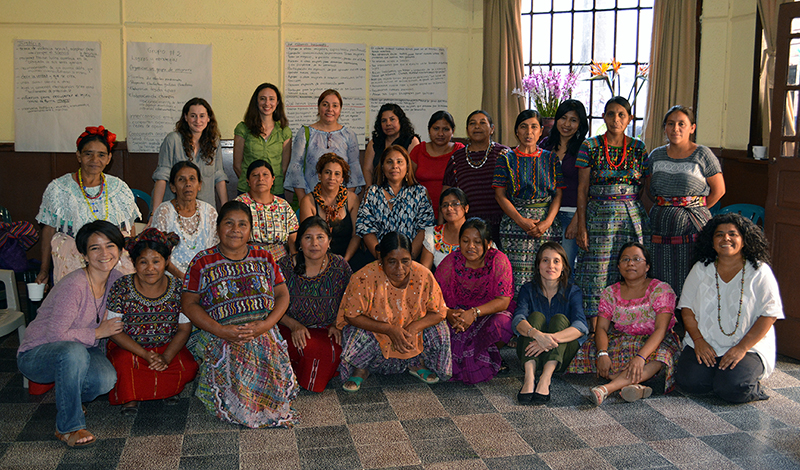
GHRC’s open August delegation met with leaders on the front lines of struggles to defend land and the environment, promote women’s rights, and push for justice for crimes of the past. We spoke with a diverse group of women, including representatives of civil society, survivors of violence and community leaders.
“The program was fantastic and the directors did an excellent job on keeping us engaged and energized.”“It was an amazing experience. If you feel strongly about everyone being treated with dignity and justice and want to help others struggling for human rights, this is a great experience for you.”“The delegation was a transformative opportunity to learn from activists and organizations defending their rights. What really inspired me was the warmth and courage of the women we met.”“I was expecting to feel a bit insecure after all the warnings about crime and violence. Instead, I felt totally safe from the first day to the last. I didn’t realize how much progress had already been made by women to better the lives of their communities.” Read a reflection from past participant Liz Clark, who participated in a different past delegation (page 6).
Delegation with American University´s Alternative Break Program: The Indigenous Struggle for Rights and Recognition after Genocide
Published in El Quetzal Issue 14, May 2013
By Nellie Mitchel
Guatemala is a complicated country. For me it was confusing, frustrating and awe-inspiring when I visited in January 2013 with a group of 12 other American University students on a delegation led by GHRC. The purpose was to delve into the topics of indigenous rights and reconciliation after conflict. Through the delegation, we learned that in Guatemala you can neither understand these issues in isolation nor separate the past from the present. In this spirit, our trip brought together powerful movements including those seeking justice, historical memory, cultural preservation and environmental equity.
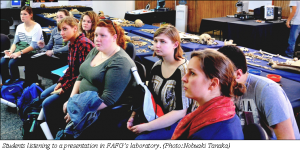
We spent the first day of the delegation in Guatemala City, where we met with the Unit for the Protection of Guatemalan Human Rights Defenders (UDEFEGUA), Families of the Guatemalan Detained-Disappeared (FAMDEGUA), and Guatemalan Foundation for Forensic Anthropology (FAFG) to establish a context of the country’s history and its current human rights situation. We were overwhelmed just hearing about the immense work these prominent individuals and organizations have taken on.
These themes began to come to life for us on the second day, when we visited the community of San Antonio Las Trojes, San Juan Sacatepéquez and learned of their six year struggle against Cementos Progreso’s mining of their land. From the tower of their church, a community leader pointed out sacred ancestral spots that they could no longer access because of the company’s work, and explained to us how the homogeny of trees in the area are the result of the company reforestation effort. This unnatural environment is completely void of the wildlife and biodiversity that once inhabited the forest. As overwhelmed as I was by the injustice of their circumstances – Cementos Progreso’s complete indifference to their right to consultation and a healthy environment, and the government’s bias in favor of the company – I was also overwhelmed by the community’s gratitude towards the AU delegation for returning to their community for the third year in a row.
The next stops for our delegation were the Maya Achí community of Río Negro and the nearby city of Rabinal, where we learned through first-hand testimony of the construction of the Chixoy dam, the related massacres, and what the community and human rights activists are doing to reconcile this unjust history. Community members, particularly survivors of the 1982 massacre, have taken on the immense responsibility of ensuring their story is kept alive.
We spent a physically and emotionally strenuous day hiking up a mountain to Pak’oxom, where177 women and children were massacred. Along the way, our guide stopped to explain the events of the day and add his personal experiences as a young boy who was left behind while his mother and siblings were marched to their death. In total, there were a series of five massacres committed against the people that were peacefully defending their ancestral land against a massive hydroelectric dam. This tragedy was caused by the government’s desire for an economic development project, funded by loans from the World Bank and the Inter-American Development Bank, within the context of the brutal internal armed conflict and scorched earth policy.
Other days were more uplifting, especially the day we visited the school Nueva Esperanza, which uses an innovative approach to educate students about their indigenous culture, their people’s history, and community sustainability through collaborative, hands-on learning. The spirit of the children and the pride they took in their heritage inspired us as they performed a traditional Maya Achí play, providing hope for a future of cultural richness and strong community leadership.
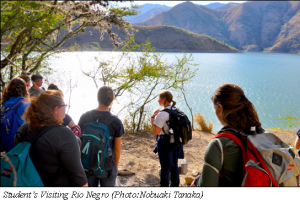
Our trip ended with a day that was both infuriating and incredibly inspirational. We visited La Puya, in San José del Golfo and saw how people from the surrounding area, from all walks of life, have come together to resist an international company’s invasion of their land. Hearing resistance leaders speak of the blatant abuses in the hands of the government and a US company made us realize how grave Guatemala’s situation still is.
What was most powerful for the students was seeing communities in resistance at every stage in the process, from the community of Rio Negro that was nearly wiped off the map 30 years ago, to people who were approaching their one year anniversary to resistance at La Puya.
Yet the strongest impression this trip left me with was the perseverance of each community. Rio Negro miraculously persevered through the government’s attempt to eliminate them, and bravely returned to rebuild their community and share their story. San Juan Sacatepéquez has weathered criminalization, bribery, and violent attacks. People around San José del Golfo have dedicated their constant attention to halting Kappes, Kassiday & Associates in its tracks. It is frightening to see the same pattern of oppression and abuse of power play out over and over again, yet amazing to see that communities, through non-violent peaceful resistance, are proving to be a true force to be reckoned with.
As I still struggle to untangle what to do with all that I have learned in Guatemala, I remember how grateful the communities were that we were present and bearing witness to their stories, whether they were decades-old stories rich in the historical memory of the community, or current struggles communities face night and day. It’s clear to me that the first step to showing our solidarity is to share these stories, and do everything we can to stand behind Guatemalans fighting for justice.
Nellie Mitchell was a student leader of the AU alternative break trip. This was her second trip to Guatemala with GHRC.
